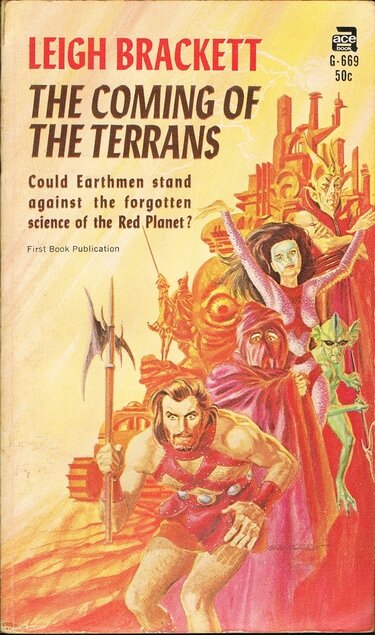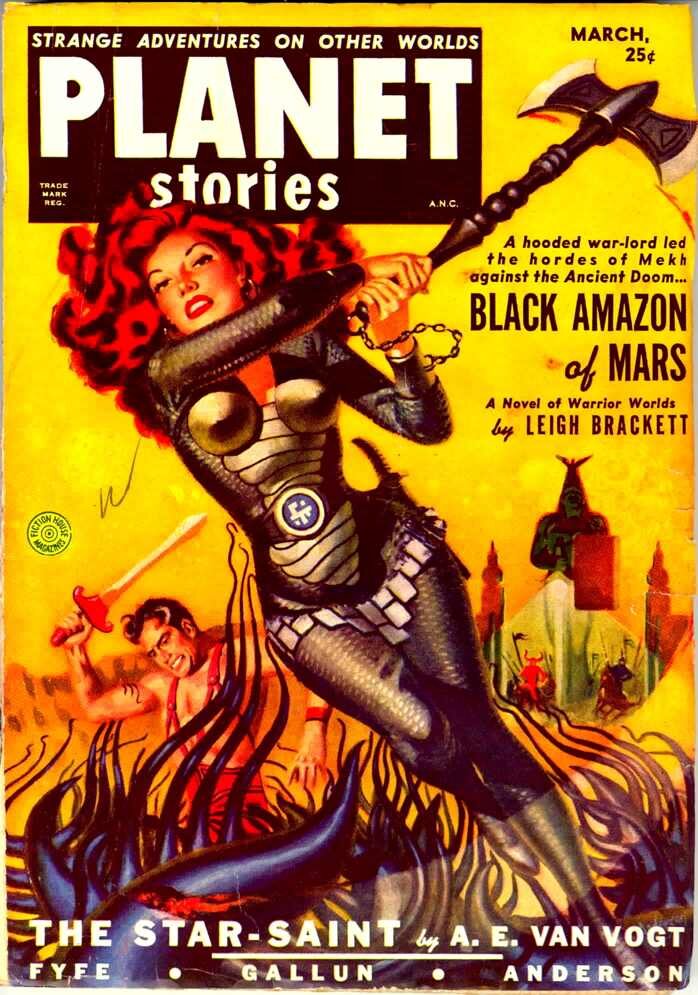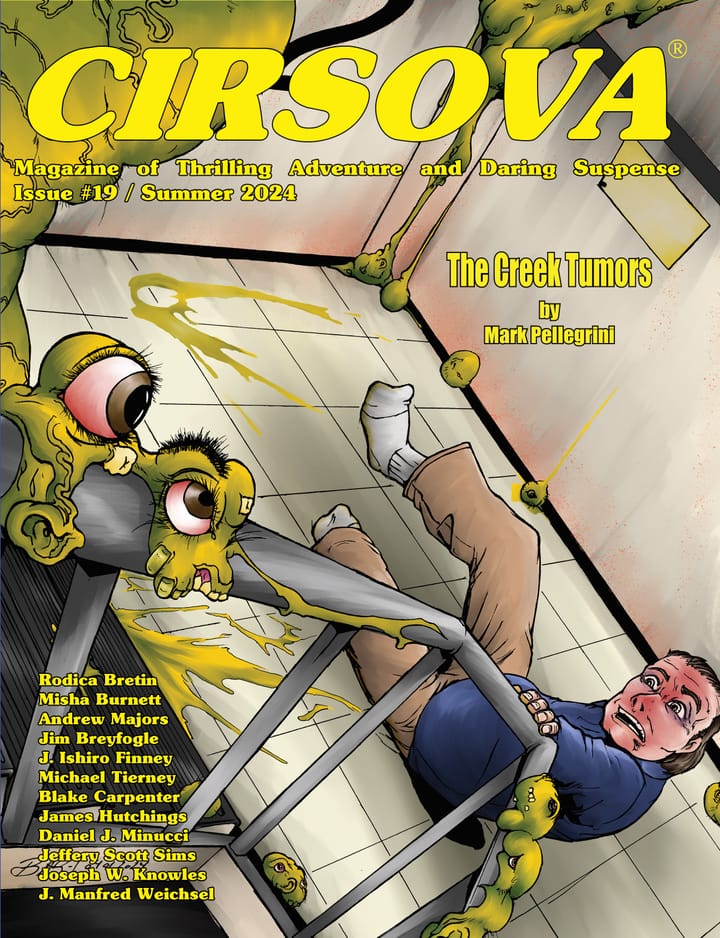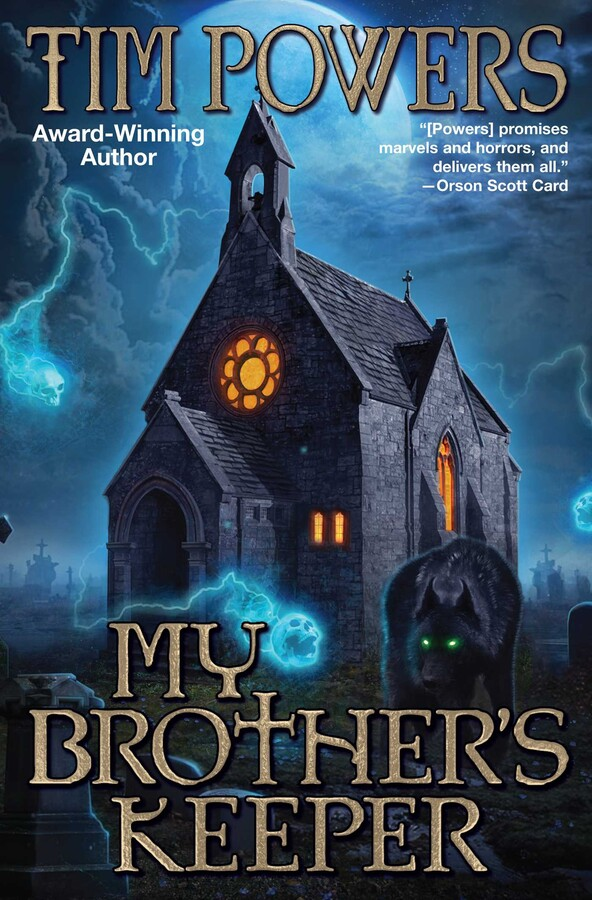The Coming of the Terrans by Leigh Brackett Book Review
This rather dark collection of short stories by Leigh Brackett, all set on the dying but not yet dead Mars, pre-Mariner and pre-Viking, starts off a bit slow, but finishes strong. The culture clash between the scientifically-minded and vigorous Earthmen and the proud and impoverished Martians is explored in five short stories covering forty years of what used to be future history, and is now alternative history, as the first is set in 1998.

The Coming of the Terrans by Leigh Brackett 157 pages Published by Ace Books (1967) ISBN 978-0020076698
Leigh Brackett wrote the greater part of her work in the 1940s and 50s, but since she mostly wrote space opera and planetary romance, I feel reasonable in mentally including her in the pulp era that preceded her active years.
This particular collection of short stories also fits that era of storytelling, as it is all set on a habitable Mars of venerable antiquity. It is also my introduction to Brackett’s work, which I only know by reputation. As is often the case, this was the first physical volume I found at the local used bookstore. As is my usual process with a collection of short stories, I will pen a paragraph or two on each entry, and then sum up my impressions of the collection as a whole.

Brackett's novella "Black Amazon of Mars" was the cover story in the March 1951 issue of Planet Stories.
By en:User:Mike Christie - http://www.isfdb.org/wiki/images/4/44/PLANETMAR1951.JPG (Transferred from en.wikipedia to Commons by Grondemar.), Public Domain, https://commons.wikimedia.org/w/index.php?curid=18228037

Brackett in 1941
By Unknown; most likely a professional photographer, possibly with "Amazing Stories" magazine. - From an autobiographical essay by Leigh Brackett, published in "Amazing Stories" magazine in July 1941., Public Domain, https://commons.wikimedia.org/w/index.php?curid=22424836

Star Trek: The Next Generation Genesis S7:E19
1998: The Beast-Jewel of Mars ****
Science fiction doesn’t get written like this anymore. Or I should say, almost anymore. There is an episode of Star Trek: The Next Generation that uses a premise similar to this, except that in that episode, where almost the entire crew de-evolves due to an ill-considered bit of genetic therapy, probably should have given the survivors PTSD, but didn’t.

Midna is not Princess Fand, but shares much in common with her
Brackett’s take on de-evolution is very noble savage, with the devotees of Shanga frolicking and fighting merrily [under the watchful eyes of guards with less-than-lethal weapons]. Or at least it looks that way until we see its seamy underbelly, following Captain Burk Winters’ desperate quest to find his lost love, lost to Shanga.
This one grew on me as I read the rest of the collection. In isolation, I might have rated it lower, but as a preface to what follows, it sets the mood perfectly. The fallen grandeur of Valkis, the haughty Martian princess as nemesis, the half-forgotten eldritch powers of Mars, are what you should expect from this volume.
2016: Mars Minus Bisha *****
An abrupt shift in form, from hopeless quest to something that mixes creeping dread with Greek tragedy. The Earthmen come to Mars with all the confidence and naive technocracy of the Kennedy Enlightenment, only to be continually confounded by the deep folk wisdom of the Martians, which is after all nothing but the bitter fruit of experience.
Frazer, a virologist from Earth, takes in a child cast out of a desert tribe for being cursed. Frazer assumes that the superstitions of the nomads mean nothing, but the ghosts of Mars’ past will come to haunt him.
2024: The Last Days of Shandakor ***
A bit of a low point in the collection for me. Perhaps my trouble is that I find the protagonist’s flaws less understandable or excusable than Winters’ or Fraser’s, who took in Bisha in the last story. However, it does well illustrate the motif of this collection, the utter incompatibility of the faded glory and wisdom of Mars with the brash overconfident energy of the Earthmen.
Perhaps part of the trouble is that Jon Ross is a scientist, studying the anthropology of Mars, and so is aligned with the technocrats who seek to remake Mars in the image of Earth, rather than an adventurer and a rogue like Winters, who is capable of simply taking Mars as it is. I am reminded very much of characters like Kit Carson, who opened the American West, and was very much at home with the people he met who already lived there, and was handy with the gun and the blade. Ross is not a Kit Carson, but rather a well-meaning do-gooder, more civilized, but less understanding.
Thus, when Ross stumbles upon the lost city of Shandakor, only tragedy can ensue.
2031: Purple Priestess of the Mad Moon *****

Of course, the conquistadors were exaggerating
Another shift in form, this time into weird tales. At first, I was tempted to call it Lovecraftian, but rather than gibbering madness, the mood is one of resignation and despair. Harvey Selden is with the Bureau of Interplanetary Cultural Relations, and newly arrived to Mars.
Selden is quite sure that the Rites of the Purple Priestess are an exaggeration of piratical adventurers, much like the memoirs of conquistadors have absolutely never been proven right by subsequent archaeology. What will Selden do when he stumbles into a Mars he thought couldn’t exist?
2038: The Road to Sinharat *****
In the final installment, Brackett returns to the point of view of the piratical adventurers, but now forty years have passed, and the technocrats have swept all opposition before them with bureaucratic prolixity, or so they think.
Only a last reckless dash into a forbidden city in the desert can prevent war, and the destruction of the tenuous hold life and civilization have on Mars.
This is my favorite story in the collection, and a fine way to end it. I appreciate the feeling of a living world behind these stories, slowly changing, yet eternally the same. Again, I was reminded of Kit Carson, and his yearning and sadness as the West he had helped conquer became tamed and civilized.
Ben’s final verdict *****
It took me a while to get into the set of mind that made this mid-century modern sword-and-planet shine, but once I found the key that unlocked it for me, I enjoyed this collection. Brackett’s Mars stories draw on the energy that drove nineteenth century colonialism, and simultaneously lament the irreversible changes that Western exploration and exploitation brought to the American West, the Middle East, and Africa. Often, the very same men who brazenly forced their way into these places and cultures because their fiercest partisans. If you then add in a cast of mind critical of the technocratic order of mid-Century America, you get some great adventures with a bit of historical tragedy.



Comments ()